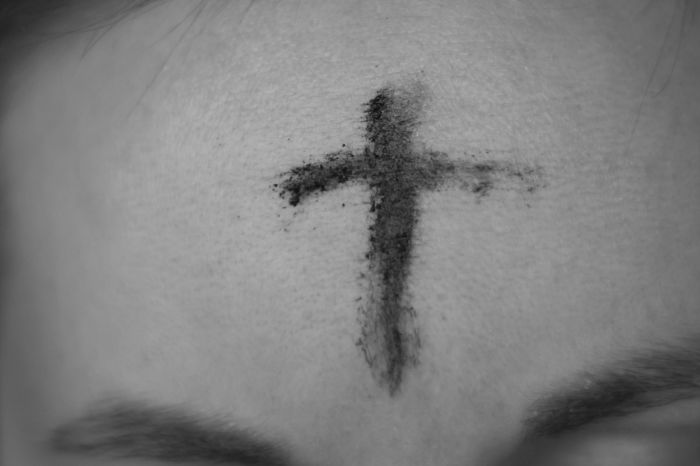For many, Ash Wednesday is a day of obligation. Others have no clue what it is. Its purpose is to open our hearts to change.

For Christians, yesterday was Ash Wednesday, the first day of a season we call Lent.
Unlike Christmas (and to a similar extent, Easter), which is a holiday pretty much everyone knows, the stuff actually around the holiday is not. What strikes me is just how familiar the concept of Lent is to half of Christianity and just how foreign it is to other parts.
For about the last millennium, Christians have begun the season of Lent with a kind of holy kickoff (un)party in which we gather and ultimately contemplate our mortality. It is probably the most unfun thing we can do. Imagine, instead of tailgating, we all gather in the parking lot and abstain from eating. Then spend our time reminding each other we’re all going to die.
But there’s something about Ash Wednesday that is extremely attractive.
It’s a splash of cold water when we’re overheated; the proverbial dose of reality.
It is striking how hungry we are for the truth. In the midst of a culture that worships the fountain of youth, self-determined success, and the never-ending grind of work, the church tells us to stop, take time to reevaluate how we’re living our lives, and stop pretending that we can avoid our problems.
People line up to have someone put ashes on their heads and tell them
“Remember that you are dust, and to dust you shall return.”
On purpose! People go out of their way to be reminded that they are insignificant and going to die.
And I think we long for this because of how fake everything else is. And how destructive eternal positivity is.
Ash Wednesday comes as the serious conversation we put off. Like writing a will or planning for your parents’ future. You know, the stuff we’re afraid to confront.
We know there’s something wrong.
And it isn’t just me. I’m not alone in this. There are so many other people refusing to think about death. Refusing to think about where we come from; our interconnection. Who refuse to recognize that we are of the same stuff, connected to the same planet, and ultimately, of the same value.
Either none of us is special, or else we all are.
But either way, we aren’t alone. We’re in this together.
Ash Wednesday exposes how broken our “normal” is. How grotesque its values are.
And then it says: I know this isn’t easy. But walk with your neighbors for the next forty days. Try and see what other way is possible.
There is a point to it, though.
And it isn’t the ashes or even the talk of death. This is the invitation; the metaphor that allures and convicts us.
The point is about facing transformation and change with the generous eyes of God. To forgive the one begging for mercy. To reconstruct the broken whole of humanity. And restore the boundless love of God to our world.
We should be cautioned not to cheap grace or one-sided forgiveness. This isn’t about letting evil off the hook. For there is no unity without first repentance.
This is the season of preparing ourselves, however; for there are immigrants to welcome and new friends who will change us. And there are old friends hoping to bury the hatchet and make amends.
And in all of this, we’re learning to change. Preparing ourselves to change.
So we address the stuff we’re afraid to change or afraid will change. We seek to make amends and end our disputes.
We are called to change the world. Which means we’d best get comfortable with what it means to change.
Here is my homily for Ash Wednesday. Watch the video for the invitation to keep a holy Lent.
